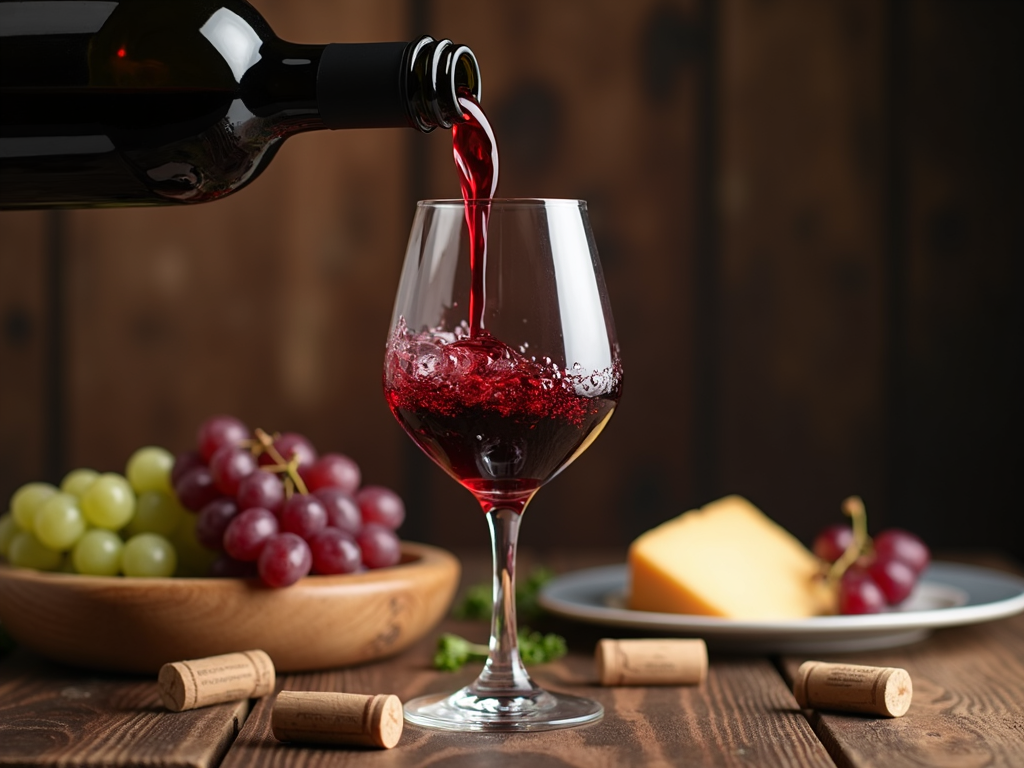Exploring the World of Wine Brands: A Focus on Organic Wines and Food Pairing
Wine has been a part of human culture for thousands of years, and today, the world of wine brands is more diverse and exciting than ever. From traditional vineyards to innovative organic producers, there’s something for every palate. In this guide, we’ll take a closer look at wine brands, with a special focus on organic wines and how to pair them with food. Whether you’re a beginner or a seasoned enthusiast, you’ll find valuable insights and tips to enhance your wine experience.
The Significance of Wine Brands
Wine brands are more than just labels on a bottle; they represent the history, philosophy, and quality of the wine inside. A well-known wine brand often signifies consistency and reliability, which is why many people gravitate toward familiar names. However, the rise of boutique and organic wine brands has introduced a new level of excitement to the wine world. These brands often focus on sustainable practices and unique flavors, offering something different from the mainstream.

What Makes Organic Wines Unique?
Organic wines are made from grapes grown without synthetic pesticides, herbicides, or fertilizers. This approach not only benefits the environment but also results in wines that are often more expressive of their terroir—the unique characteristics of the land where the grapes are grown. Organic wine brands are committed to sustainability, and many go beyond just organic farming by adopting biodynamic or regenerative practices.
One of the most well-known organic wine producers is Jackson Family Wines, a family-owned company with a portfolio of vineyards across the globe. Their commitment to sustainability is evident in their organic vineyards, where they prioritize soil health and biodiversity. I had the pleasure of visiting one of their vineyards in California, and it was inspiring to see how they integrate organic practices into every aspect of their winemaking.
My Experience with Organic Wines
My first encounter with organic wines was at a small tasting event in Napa Valley. I was initially skeptical, thinking that organic might mean compromising on flavor. However, I was pleasantly surprised. The wines were vibrant, with a purity of fruit that I hadn’t experienced before. One particular wine, a Pinot Noir from Jackson Family Wines, stood out for its bright cherry notes and smooth finish. It was a reminder that organic doesn’t mean less quality—it often means more care and attention to detail.

Food and Wine Pairing: Organic Edition
Pairing food with wine is an art, and when it comes to organic wines, the experience can be even more rewarding. Organic wines often have a cleaner, more natural flavor profile, which makes them versatile for pairing with a variety of dishes. Here are some tips for pairing organic wines with food:
- Organic White Wines: These are perfect with light dishes like seafood, salads, and grilled vegetables. A crisp organic Sauvignon Blanc, for example, pairs beautifully with a fresh goat cheese salad.
- Organic Red Wines: Richer organic reds, like a Syrah or Cabernet Sauvignon, go well with heartier meals such as roasted meats or pasta with tomato-based sauces.
- Organic Rosé: This is a great match for summer dishes like grilled chicken or Mediterranean cuisine.
When pairing, it’s important to consider the intensity of both the wine and the food. A light wine can be overwhelmed by a heavy dish, and vice versa. Organic wines, with their pure flavors, can enhance the natural tastes of the food without overpowering them.
A Memorable Pairing
One of my favorite food and wine pairing experiences was at a farm-to-table restaurant that specialized in organic ingredients. I ordered a dish of roasted duck with a cherry reduction, paired with an organic Pinot Noir from Jackson Family Wines. The wine’s bright acidity and fruit-forward profile complemented the richness of the duck perfectly. It was a match made in heaven, and it reinforced my belief that organic wines can elevate a meal in unexpected ways.

Exploring Organic Wines: A Beginner’s Guide
If you’re new to organic wines, it can be overwhelming to know where to start. Here’s a simple guide to help you navigate the world of organic wine brands:
- Look for Certification: Organic wines are certified by various organizations, depending on the country. In the U.S., look for the USDA Organic seal.
- Start with Familiar Varietals: If you’re used to drinking a particular type of wine, like Chardonnay or Merlot, try an organic version of that varietal first.
- Visit Local Wineries: Many organic wine brands offer tastings at their vineyards. This is a great way to learn more about their practices and sample their wines.
- Experiment with Pairings: Don’t be afraid to try new food and wine combinations. Organic wines can surprise you with their versatility.
Jackson Family Wines is a great place to start your organic wine journey. Their commitment to sustainability and quality makes them a leader in the organic wine movement.
Popular Organic Wine Brands
Here’s a list of some popular organic wine brands to explore:
- Jackson Family Wines
- Bonterra Organic Vineyards
- Frey Vineyards
- Emiliana Organic Vineyards
- Domaine Bousquet
Each of these brands offers a range of organic wines, from crisp whites to bold reds, so there’s something for every taste.

Why Choose Organic Wines?
Organic wines are growing in popularity for good reason. They’re better for the planet, often taste more authentic, and appeal to those who care about what they consume. Studies from organizations like the Organic Trade Association show that demand for organic products, including wine, has been steadily rising. Choosing organic supports sustainable farming and lets you enjoy wine with a clear conscience.
When I switched to organic wines, I noticed a difference not just in taste but in how I felt about drinking them. Knowing that the grapes were grown with care for the environment added an extra layer of enjoyment.
Tips for Buying Organic Wines
Here’s a quick table to help you pick the best organic wines:
| Factor | What to Look For |
|---|---|
| Certification | USDA Organic or equivalent |
| Price | Ranges from $10-$50 depending on quality |
| Varietal | Choose based on your taste preferences |
| Region | Look for known organic regions like Tuscany |
These tips can guide your next purchase and ensure you get a bottle worth savoring.

Summary
Wine brands, especially those focusing on organic practices, offer a unique and sustainable way to enjoy one of life’s great pleasures. From the vineyards of Jackson Family Wines and organic vineyards to the dining table, organic wines provide a pure, flavorful experience that enhances both the wine and the food it’s paired with. Whether you’re a beginner or a seasoned wine lover, exploring organic wines can open up a new world of taste and appreciation.
Check out the recommended readings below for more on organic wines and food pairing.